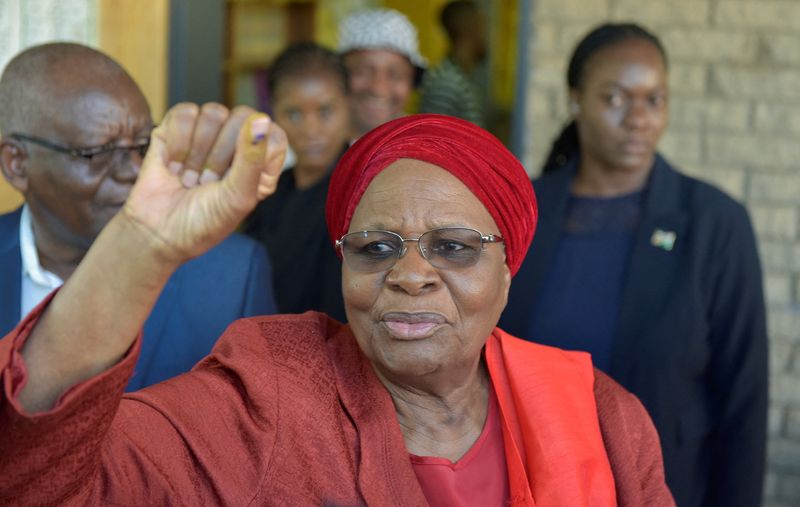By Nyasha Nyaungwa
WINDHOEK (Reuters) -Voters waited in long queues outside polling stations in Namibia's capital Windhoek on Wednesday morning to cast their ballots for a new president and parliament in what could be a tough election to win for the ruling SWAPO party.
SWAPO has governed the southern African nation since leading it to independence from apartheid South Africa in 1990. Its presidential candidate, Vice President Netumbo Nandi-Ndaitwah, would be the country's first female leader if she wins.
Political analysts said there is a possibility SWAPO will be ousted by youth fed up with high unemployment, inequality and corruption allegations, although longstanding loyalty to the party among older and rural voters could help it pull through.
Polls opened at 0700 local time (0500 GMT) but some voters had been in place since the night before.
"I came here at 0630 (0430 GMT) but the queue was long. Previously in 2019 I didn't experience this," said Tuna Alweendo, a teacher.
"The majority of the young people feel like they want to be involved in politics, they want to bring change to their country. Perhaps that has motivated them to say, let's go out (and) vote," she said.
SWAPO's support fell to 56% in the 2019 presidential election from 87% in 2014. To be elected president, a candidate must get more than 50% of votes or there will be a run-off. Namibians vote separately for the National Assembly.
Leading the pack of 14 opposition candidates is dentist-turned-politician Panduleni Itula, who came in second in 2019.
Namibia is currently led by interim president Nangolo Mbumba, who took over in February after former president Hage Geingob died but is not running.
"The biggest challenge we have in this country now is unemployment," said Nandi-Ndaitwah after casting her vote at a primary school in Windhoek.
"Our priority is job creation, particularly among our youth," she said, blaming repeated droughts and the COVID-19 pandemic for worsening the situation.

Namibia has seen relatively strong economic growth in recent years driven by investments in oil, gas and green hydrogen. But it ranks second highest in the world for income inequality, according to World Bank figures.
About 1.4 million people are registered to vote in the sparsely populated country of around 3 million, according to the electoral commission. Results are expected within a few days.
(Additional reporting and writing by Nellie Peyton; Editing by Olivia Kumwenda-Mtambo, Alexandra Hudson (NYSE:HUD))